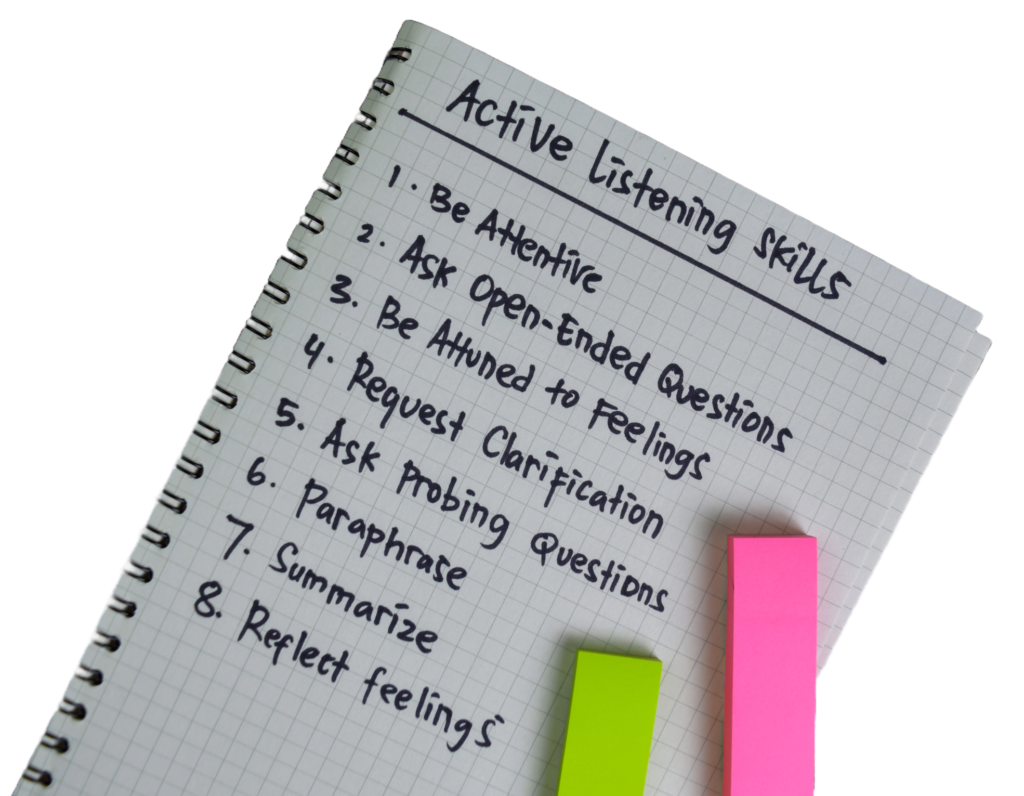In this fast-paced digital world, conversations often occur in snippets and sound bites, the profound act of truly listening has taken a backseat. But let’s pause and reflect on a powerful insight: Listening is not a passive activity. It takes an active effort to understand not just the words, but the emotions and intentions behind them. This statement opens a world of wisdom about communication, connection, and compassion in our interactions with others.
Understanding Active Listening
Active listening is a conscious process that involves not only hearing the words spoken but also comprehending the complete message being conveyed. It’s about tuning into the nuances of tone, the unspoken or hidden emotions, and the intentions dangling just between the lines. In essence, active listening is the bridge that connects the islands of human experiences, enabling us to understand each other’s worlds a bit better.
The Activity of Active Listening
Active listening is composed of several actions that comprise the active listening skillset. Image below briefly describes the activity of listening.

Why Is Active Listening Important?
Active listening is foundational to building strong relationships, whether personal or professional. It fosters an environment of trust and respect, where people feel valued and understood. In a world where everyone wants to be heard, giving of yourself to listen can transform interactions in profound ways.
A Scenario: The Lost Art Rediscovered
Imagine Amy, a manager in a bustling corporate office. Her days are filled with meetings, emails, and constant problem-solving. Amidst this whirlwind of activity, Amy realizes her team’s morale has been dwindling. The usual vibrancy and collaboration have given way to silence and disengagement.
Determined to turn things around, Amy holds a series of one-on-one meetings with her team. But this time with a twist, she approaches these meetings differently. Instead of the usual rush to offer solutions, Amy focuses on actively listening. She pays attention to not just what her team members say but how they say it: their hesitations, any stress in their voices, and the unspoken concerns behind their words.
As the meetings progress, Amy discovers concerns and ideas that had never surfaced in team meetings. She realizes that her team members didn’t just need directives; they needed to be heard, to feel that their contributions mattered.
Armed with these insights, Amy makes changes to how the team operates, encouraging more open communication and creating spaces for everyone to share their thoughts and feelings. Over time, the office begins to buzz with energy again, as team members feel more connected and valued.
The Ripple Effect of Active Listening
Amy’s story is a testament to the transformative power of active listening. By choosing to listen actively, she not only identified and addressed the underlying issues affecting her team but also fostered a culture of mutual respect and understanding. The effects of active listening can extend beyond the workplace, enhancing personal relationships, community interactions, and even communication on social platforms.
Developing the Skill of Active Listening
Becoming an active listener takes learning and practice. Here are some tips that expand on the list above to grow this skill:
Be Present: No multitasking. Giving someone your full attention is a precious gift. Resist the urge to check your phone or think about your response while the other person is speaking. It can be difficult, but you can do it!
Maintain Eye Contact: No staring, please. This non-verbal cue shows you are engaged and interested in what the speaker has to say.
Reflect and Clarify: Periodically, summarize what you’ve heard and ask clarifying questions. This informs the speaker that you are actively following the conversation and care about accurately understanding what’s being communicated.
Acknowledge Feelings: Acknowledge and affirm the speaker’s emotions. Saying things like “That sounds challenging” or “I can see why you’d feel that way” can make a significant difference.
Practice Patience: Let the conversation unfold naturally without rushing to fill silences or immediately offering solutions.
By embracing the art of active listening, we not only hear more but also understand and connect on a level beyond words, weaving our own fabric of genuine human connection.


 The Halloween holiday isn’t the only event of significance on October 31. A number of notable things occurred in history on this date:
The Halloween holiday isn’t the only event of significance on October 31. A number of notable things occurred in history on this date: